How Long Can You Wait to Submit an Insurance Claim?
If you’re involved in an accident, you’re not just dealing with injuries or property damage. You’re also faced with critical deadlines that can affect whether your insurance company will honour your policy at all. The consequences of missing those deadlines can lead to a denied claim which can have devastating consequences, as seen in a recent case told by CTV News.
At McNally Gervan LLP, we help people understand the deadlines and decision points that follow an injury. Here’s what you need to know about how long you can wait to submit an insurance claim in Ontario.
What You Need to Know About Your Time Limit to File a Claim
The Deadline to Notify Your Insurer Starts Immediately
If you’ve been in a motor vehicle accident, Ontario’s rules require that you inform your insurance provider within seven days, which applies whether you’re planning to file for accident benefits or not. The initial report doesn’t need to contain every detail, but the insurance company must be made aware that the accident occurred.
Many people assume it’s fine to wait until they’ve seen a doctor or gathered more information before making a car accident claim, but that can be an expensive mistake. This early notification triggers access to accident benefits and secures your eligibility later in the claims process. If your injuries aren’t obvious right away, that doesn’t change your legal responsibility to report.
The Application for Accident Benefits Must be Submitted Within 30 days
Once you report the accident, your insurer will provide an application for accident benefits. This includes the OCF-1 form, which must be filled out and returned within 30 days. The application gives you access to coverage for medical costs, income replacement, rehabilitation, and other support under your auto insurance policy.
Failing to meet this deadline can result in reduced benefits or an outright denial. Some insurers will consider extensions for reasonable delays, but you shouldn’t rely on that discretion. If you’re overwhelmed by the paperwork or unsure of what to submit, legal guidance can help. McNally Gervan routinely supports clients through the insurance claim process and ensures they meet every requirement the first time.
Personal Injury Lawsuits Have a Two-Year Deadline
When your injuries are caused by another person’s negligence, whether it’s a car accident, a pedestrian injury, or another form of harm, you may have grounds to bring a personal injury lawsuit. In Ontario, you generally have two years from the date of the accident to begin that legal action.
That timeline is fixed and courts rarely allow exceptions. But even within the two-year window, delay can weaken your claim. Important evidence may be lost, witnesses may become unavailable, and records may be harder to access. Building a strong case takes time. Starting early gives your legal team the chance to gather what they need before the deadline arrives.
For Falls on Public Property, Notice is Required Within 10 Days
If your injuries happened because of a fall on city-owned property like a sidewalk, park, or public building, you are required by law to give written notice to the municipality within 10 days. That notice must include the date, time, and location of the incident, and a brief description of what occurred.
Missing this step can prevent you from pursuing compensation. For accidents on private property, while no formal notice period applies, timely reporting still makes a difference. Whether your claim involves a commercial business or residential landlord, early notice increases your chances of preserving evidence, contacting witnesses, and establishing fault.
Delays Make it Harder to Prove Your Claim
When an insurance claim is submitted late, it’s not just the paperwork that suffers. The strength of your evidence is often tied to how soon you act. Footage from security cameras might be deleted after a few weeks. Witnesses may forget key details. Even your own medical records might be incomplete if you didn’t seek care right away.
These gaps can lead to disputes over what really happened or whether the injuries were caused by the accident at all. That applies across the board to car insurance claims, disability claims, and even home insurance claims. Acting quickly helps ensure the necessary evidence is available when your insurer asks for it.
Late Claims May be Denied Outright
Insurance companies have internal policies for reviewing claims and many of them are driven by strict procedural timelines. If you miss a reporting window or submit incomplete or delayed forms, the insurer may deny your claim. That is true regardless of how serious the injury is or how valid the situation may seem.
It’s also common for delays to raise red flags. A claim that arrives late may trigger extra scrutiny from the insurance adjuster. They may question the severity of your injury, your version of events, or whether the incident even qualifies under your coverage. We’ve seen entirely valid claims get rejected on technical grounds that could have been avoided with timely action.
Speak to a Lawyer Before Speaking to the Insurance Company
The insurance company is not obligated to explain your rights or help you strengthen your claim. Their interest is in managing risk and controlling cost. That’s why speaking with a personal injury lawyer before contacting the insurer is often the safest approach.
A lawyer can help you understand your insurance policy, clarify what needs to be submitted, and prevent missteps during the early stages. They can also handle communications with the insurance company directly. This is especially helpful if your injury is serious or your claim is complex. At McNally Gervan, we help clients with a wide range of cases, from personal injury claims to insurance disputes involving long-term disability claims.
Know Your Deadline & Your Rights With McNally Gervan
Missing a deadline doesn’t just delay your compensation or benefits. In some cases, it eliminates your ability to make a claim at all. Whether you’re facing medical expenses, lost income, or damage to your vehicle or property, understanding the time limits that apply to your insurance claim is critical.
At McNally Gervan LLP, we help people navigate personal injury claims, disability claims, and insurance disputes. We don’t work for insurers. We work for you.
If you’ve been injured and are considering making a claim for damages, have been denied short-term disability claim benefits, or are simply unsure of your rights and options, contact us for a free consultation. We’ll help you make informed decisions and take the steps needed to protect your rights before the clock runs out.






Follow Us